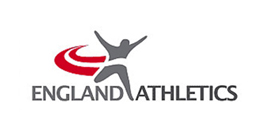- Posted September 22, 2019
Hear what Dani Chattenton had to say about her amazing year on the track
Talk us through your most recent success, Dani: the 1500-metre race at the British Championships in Birmingham in August, in which you won a bronze medal.
I felt quite mixed before the final. I hadn’t been feeling like myself in training for a couple of months so didn’t have a lot of confidence going into the champs. I was most nervous for the heat as family and friends had bought tickets and hotel rooms for the weekend, so I didn’t want to let them down. Once I got to the final, I was a bit calmer, but I knew it was my last race of the season and a bronze medal was up for grabs so I knew I had to give it my all and see what happened. I got myself in a good position and the pace was slow so I kept telling myself to concentrate and focus, ready for when someone made a move. When Sarah and Jemma kicked, Holly went with them but I knew it was too fast, so I held back and others also went past. With 200m to go, I think I was in sixth place. I thought, that’s a decent position but let’s give it everything. As I kicked, the others lost some momentum and I was passing them quicker than I expected. With about 60m to go I knew I was catching up to Holly (in third place),but I wasn’t sure if I had enough track left so I just told myself to keep pushing and dive over the line if I had to.
You also represented Great Britain at the European cross-country championships in Tilburg, Holland, in December 2018. You finished in 21st position, winning a team bronze medal in the U23 age category. This summer you also represented Great Britain at the 30th World University Games in Naples, Italy. You have had a fantastic year. Which race has meant most to you, and why?
Yes, it was a crazy year. I hoped maybe one of those things would happen but not so many all at once! They all mean a lot in different ways. Euro cross will always be special as it was my first GB vest, and the World University Games (WUGs) was my first GB vest on the track. WUGs was the best experience as we had a great group and everyone got on well. I feel like I learnt a lot from other members on the trip who have been in the sport for a lot longer than me so I could ask them questions about training and racing – it was quite cool to be on the same team as people I’ve looked up to since I started running properly. British champs was crazy because never in my wildest dreams did I think I’d win bronze; my aim was to make the final. I’m also so grateful for Kyle, who comes to all my races. Hopefully I’m making him proud!
What’s your next goal? Your next big race? Your ambitions for the future?
Now I’m senior rather than U23, it gets a lot harder to make teams. Next season my aim is to improve my PBs in the 1500m and 5000m as much as possible then the year after (2020–21) to start running qualifying times for track teams. The next World University Games is in China in summer 2021, and I’d like to make that team.
You’re currently studying for a PhD in Bioengineering and Cancer at the Institute of Cancer Research and Imperial College London. How do you find time to fit in a demanding student life and training? And where do you see your career going?
I get asked this question a lot! I’ve always done sport and after-school activities since I was tiny. The rule was, I could do as much as I wanted as long as I did my homework and my grades stayed the same at school. This made me work hard at school because I loved training and most of my friends were from sports clubs so I never wanted to miss them. This meant I learnt to manage my time to get everything done, so now it’s second nature. I’m definitely less productive at work when I don’t have loads of training to do. Plus, the Imperial sports centre is across the road from my office so I don’t have to spend loads of time travelling to training venues. My PhD supervisors are also really supportive and watch my races on TV too! After I finish my PhD I plan to see where I am with running and maybe focus on that for a few years. After that, I want to go to medical school. Maybe one day I’ll get a proper job.
Now for some general running questions. How much time do you and Kyle spend talking about tactics before a big race?
Not a huge amount. We might talk about who is in the race or how we think it might unfold a week or so before, then we don’t usually talk about tactics until race day. Sometimes I wish Kyle would just tell me what to do, but we usually talk through the options then he says something along the lines of ‘you decide what you want to do, you usually get it right’.
What’s your training schedule like?
Monday a.m.: 6-mile easy run, 1 hour strength and conditioning (S&C) in the gym.
p.m.: stretching, mobility, foam rolling, etc.
Tuesday a.m.: 4-mile easy run with 1 mile steady.
p.m.: track session, 20-mins stretching.
Wednesday a.m.: no running. I usually have experiments in the lab all morning.
p.m.: 6-mile easy/recovery run (usually my slowest run of the week after Tuesday track, for extra recovery),then core, foot and ankle circuit, 20 mins stretching.
Thursday lunch: 6-mile run then 1 hour S&C in the gym.
p.m.: 1 hour stretching, mobility, foam rolling, etc.
Friday: rest day.
Saturday: track/grass session.
Sunday a.m.: long run (10–13 miles).
p.m.: foot and ankle circuit, stretching, mobility, foam rolling, etc.
What is your favourite race distance? And do you prefer track or cross-country?
It has always been 1500m, but I’ve loved the 5000m this year as my endurance has improved. I prefer track but I’m learning to like cross-country.
What hobbies do you enjoy when you’re not working or running?
Running and working take up most of my time but when I have a season break and can go on holiday I like to surf. I also love cooking new things and baking so I guess that counts too.
What’s the best piece of advice you’ve received (not necessarily related to running)?
Everyone always tells me to stay patient, which is really important in distance running – and something I have to remind myself every now and then.
What do you do on the night before a race? Do you have any superstitions? Do you always get 8 hours of sleep before a race?
I’m not superstitious but generally stick to the same routine as I know it works. The night before, I usually have tortellini for dinner and get as much sleep as possible. They say the night before the night before (so two days before a race) is the most important night’s sleep as most people don’t sleep well the night before due to nerves. On the day, if it’s an afternoon race I’ll do a 3-mile shake-out in the morning then have porridge and a banana for breakfast. If there’s time for lunch I’ll have white pasta and tuna then a bagel with peanut butter and jam an hour before I warm up.
We wish you all the best for the coming season. Thank you so much for agreeing to this interview, which is the first in a series of interviews with MKDP club athletes. Check out the MKDP website for the next interview!





